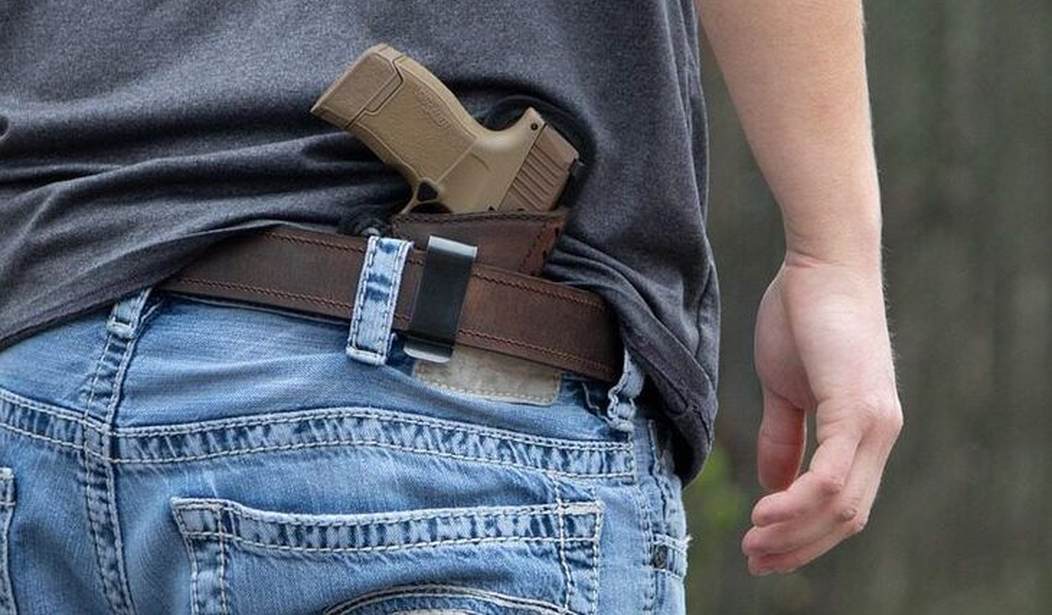As the Supreme Court is set to hear a case involving concealed carry in the state of New York–in particular, whether states can require “good cause” before deciding whether or not to issue a permit–a lot of people are nervous. It seems absolutely no one actually believes the court will find for the state in this one, and that makes a lot of people nervous.
In particular, a number of states with similar requirements will have to sit by and wait to see just how upended their laws will become.
For some, though, it’s not enough to just wait for the ruling. No, they want the states to be proactive in minimizing the impact of that ruling.
Many in Massachusetts were shocked and saddened last month when the Supreme Court refused to block Texas’ law banning abortions after six weeks of pregnancy, before many people know they are pregnant. Fortunately, Massachusetts was prepared for this — in 2020, the Legislature codified abortion rights in state law. But the next shoe to drop will hit closer to home: The court is expected to expand the right to carry guns in public. The Legislature has an opportunity to limit the negative impact of this decision by acting now to draft a comprehensive concealed carry law that will withstand judicial scrutiny while still protecting residents from the worst effects of public gun carrying.
…
While the loss of these laws will be a lamentable blow to public safety and democracy, Massachusetts still has options to protect its residents under this new, judicially imposed regime. Although Massachusetts would no longer be able to require a demonstrated need to carry a firearm, it could still set stringent — but objective — requirements for obtaining a permit, including: live range training, training in self-defense law, and prohibitions on obtaining a permit for people with certain kinds of criminal convictions. The Legislature could also prohibit people from carrying guns in sensitive places such as bars, stadiums, places of worship, or playgrounds. The Legislature should also provide ways that private businesses can opt out of allowing guns on their premises through clear signage, or even require private businesses to opt in if they wish to allow guns on their property. Existing laws already address some of these issues, but with gun carrying about to open up to most of the general public for the first time, it is imperative that the Legislature take a fresh look.
There are many options to make public carrying in Massachusetts as safe as possible, but one option we can’t afford is inaction. Illinois found this out the hard way. When its ban on concealed carrying was struck down by a federal appeals court in 2012, it led to a rushed process under the gun of the court’s deadline. Ultimately, Illinois enacted a new law that was far less stringent than activists had hoped, given the Democratic supermajority in Illinois’ state Legislature.
Of course, the author is correct. There are objective standards that Massachusetts could enact that would be objective and might actually survive the Supreme Court ruling.
Maybe.
And that could also open the state up for a future Second Amendment case that would end up before the Court.
For example, let’s say that Massachusetts goes down this road. They don’t like people carrying guns in general, so it stands to reason that any such proposal would be as restrictive as possible. It’s unlikely they’d limit it to, say, people with certain kinds of drug convictions or thefts that don’t quite reach the level of a felony or even people with violent misdemeanors. No, they’d likely include many or all and potentially go further, such as people with DUIs.
How long before someone decides to challenge those laws in a case that ends up before the Supreme Court?
It would cost the state millions to defend a law that was nothing more than an attempt to create an end-around an upcoming decision.
And that’s without there actually being a decision in place. Yes, traditionally, the court tends to rule rather narrowly on the case at hand, meaning they don’t preemptively smack down rules that aren’t part of the case before them. However, there’s nothing saying they can’t. The Court could well rule that any restrictions at all on concealed carry–including training requirements or restrictions on non-felons being able to carry–are unconstitutional.
Still, this is likely to be the next battleground in these states, so Second Amendment activists would do well to prepare themselves.







Join the conversation as a VIP Member